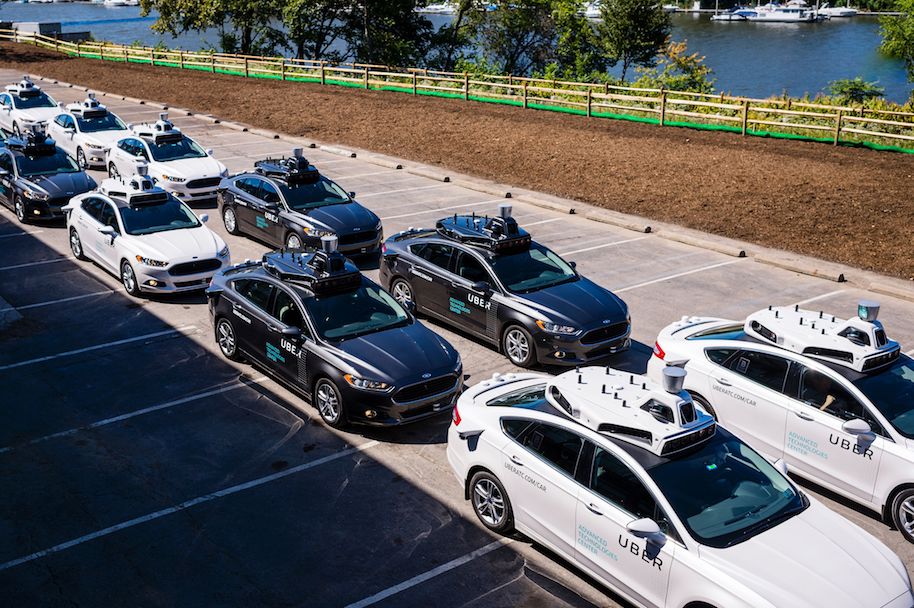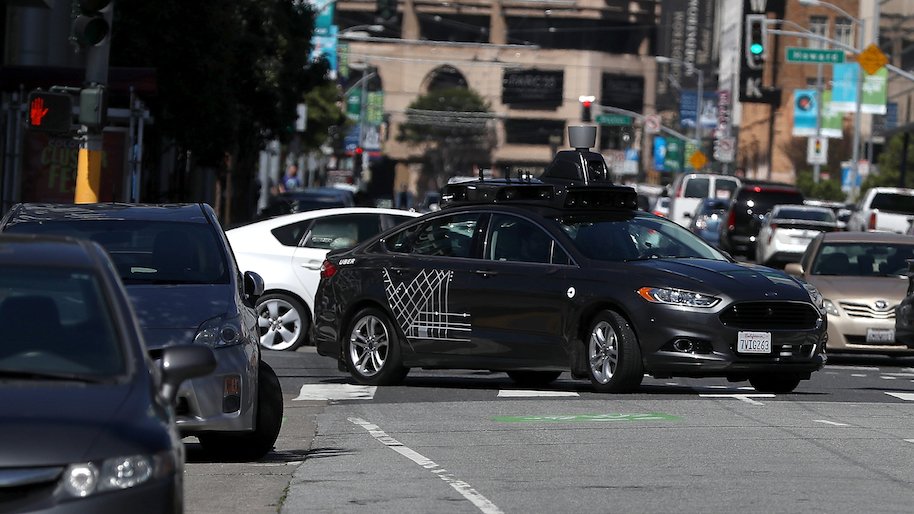Photo: Justin Sullivan (Getty)
Making jokes about robots eventually taking over humanity is all fun and games until they actually start defecting. In the case of the death of 49-year-old Elaine Herzberg, the gag has taken on a life of its own in the creepiest way.
On March 18th, a modified Volvo XC90 Uber self-driving car struck and killed Herzberg. This is troubling for a number of reasons, especially the fact that the car was occupied by a –albeit, distracted — “safety driver” whose very job was preventing such things. The Tempe Police Department released distressing footage clearly showing he was distracted at the time of the incident:
Tempe Police Vehicular Crimes Unit is actively investigating
the details of this incident that occurred on March 18th. We will provide updated information regarding the investigation once it is available. pic.twitter.com/2dVP72TziQ— Tempe Police (@TempePolice) March 21, 2018
Sadly, the matter has gone from bad to worse. It was recently revealed that the self-driving Uber vehicle responsible for Herzberg’s demise actually sensed her presence, but chose to ignore it. There’s a lot of technical jargon to accompany the explanation, but in layman’s terms, there are sensors to detect obstacles (including pedestrians) in these autonomous car which can be programmed to determine when evasion is necessary. Uber set that threshold so low it didn’t even pick up on a bicyclist, instead flagging it a “false positive.”
Gotta love the future: ‘Human Uber’ Lets You Attend Events Using Someone Else’s Body
It appears we’re in a place now where advancements in technology are coming at a real cost. It’s worth noting the sensory defect and lack of human oversight were the cause of Herzberg’s death. However, Uber played it pretty fast and loose with the rules to begin with. Along with reducing the overall number of LIDAR sensors in their self-driving cars prior to the accident, they had also decreased the number of “safety drivers” on the ride alongs from two to one (explaining why the man was alone in police footage of the fatality).

The question now is whether or not the average person believes these risks to be worth the overall reward. Are a few deaths of innocent people a small price to pay for paying less attention to the world around you? Sound off and let us know your take before the possibility is a full-fledged reality.




